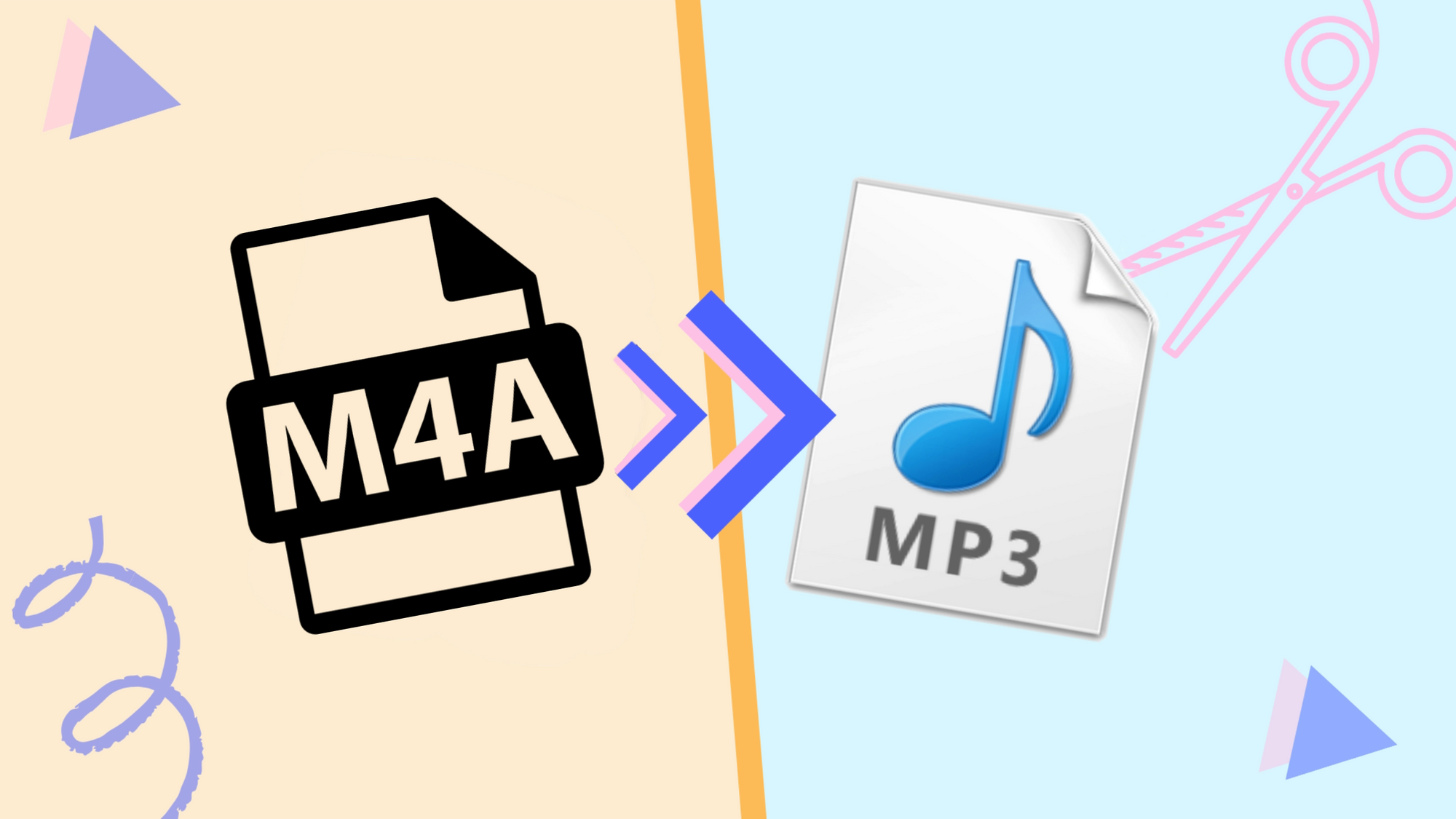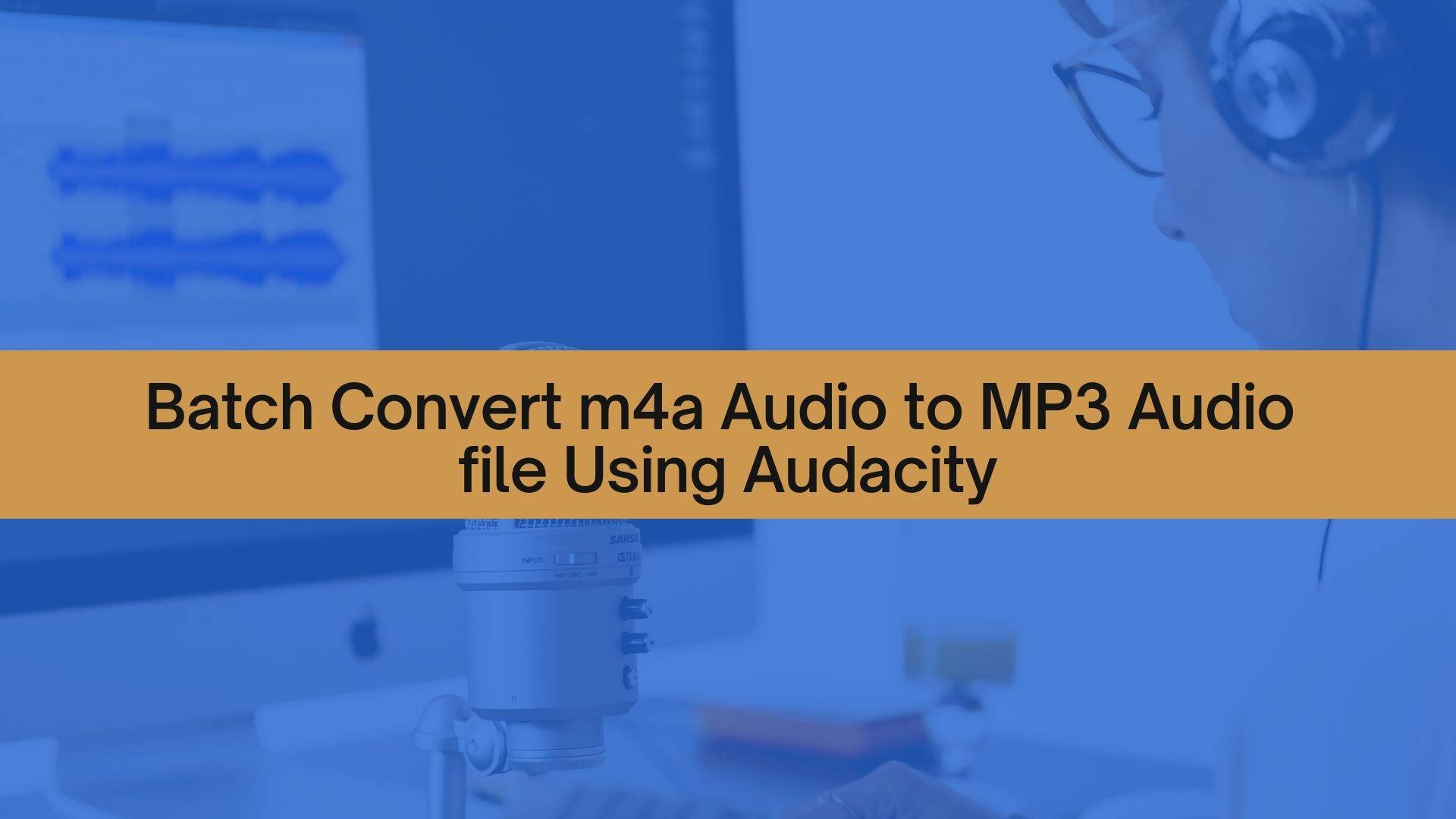Alright, listen up, folks. If you've ever found yourself scratching your head wondering how to convert M4A files to MP3, you're not alone. In today's digital world, file formats can sometimes feel like a maze. But don't sweat it—we’ve got your back. Whether you're trying to optimize your music library or share audio files with friends, this guide is here to make your life easier. So, let’s dive right in and get those M4A files converted to MP3 like a pro.
Here's the deal: M4A files are great for maintaining high-quality audio, but sometimes you just need something more universally compatible—enter MP3. The MP3 format is like the universal language of audio files. It works on almost every device, from smartphones to car stereos. This guide will walk you through everything you need to know about converting M4A files to MP3, step by step, so you can enjoy seamless playback wherever you go.
Now, before we get into the nitty-gritty, let me assure you that this process is not as complicated as it might sound. You don’t need to be a tech wizard to pull this off. With a few simple tools and some easy-to-follow instructions, you'll have your M4A files converted to MP3 in no time. Ready? Let’s go!
- Mkvcinemas 2024 Your Ultimate Destination For Movie Downloads
- Movierulz 2024 Ndash Your Ultimate Guide To Downloading Kannada Movies
Why Convert M4A to MP3?
Let’s face it, M4A files are awesome for quality, but they’re not always the most convenient choice. If you’re asking yourself, “Why should I convert M4A to MP3?” here’s the answer: MP3 files are smaller, more portable, and compatible with practically every device out there. Here’s a quick rundown of why you might want to make the switch:
- Compatibility: MP3 works on almost every device, from old-school MP3 players to modern smartphones.
- File Size: MP3 files are smaller, making them easier to store and share.
- Portability: Whether you’re transferring files to a USB drive or uploading them to the cloud, MP3 files are just simpler to handle.
So, if you’re looking for a format that’s easy to use and works everywhere, MP3 is your go-to choice. Now that you know why, let’s move on to how!
Tools You Need to Convert M4A to MP3
Before we dive into the conversion process, you’ll need the right tools. Don’t worry, there are plenty of options available, both online and offline. Here’s a quick list of what you’ll need:
- Gali Gool Leaked The Untold Story And What You Need To Know
- Deephotlink The Ultimate Guide To Understanding And Utilizing This Powerful Tool
Online Converters
Online converters are super convenient because they don’t require any downloads or installations. All you need is an internet connection and a web browser. Some popular options include:
- Online Audio Converter: A simple and user-friendly platform that supports a wide range of audio formats.
- Convertio: A reliable tool that allows you to convert files directly in your browser.
- CloudConvert: Offers advanced features and supports batch conversions for multiple files at once.
Desktop Software
If you prefer using software installed on your computer, there are plenty of great options. Here are a few:
- VLC Media Player: Not just a media player, VLC can also convert M4A files to MP3 with ease.
- Audacity: A free and open-source audio editor that’s perfect for converting and editing audio files.
- Freemake Audio Converter: A powerful tool with a user-friendly interface that supports a wide range of formats.
Now that you know what tools are available, let’s get into the actual conversion process!
Step-by-Step Guide to Convert M4A to MP3
Alright, let’s break it down step by step. Whether you’re using an online converter or desktop software, the process is pretty straightforward. Here’s how you can do it:
Using an Online Converter
Here’s a quick guide on how to convert M4A to MP3 using an online converter:
- Choose a reliable online converter like Online Audio Converter or Convertio.
- Upload your M4A file to the converter. Most platforms allow you to drag and drop files directly into the browser.
- Select MP3 as the output format.
- Adjust any additional settings if needed, such as bitrate or quality.
- Hit the "Convert" button and wait for the process to finish.
- Download the converted MP3 file to your computer.
That’s it! Simple, right?
Using Desktop Software
If you prefer using software installed on your computer, here’s how you can do it:
- Download and install your chosen software, such as VLC Media Player or Audacity.
- Open the software and locate the option to convert files. In VLC, for example, you can find this under the "Media" menu.
- Select your M4A file and choose MP3 as the output format.
- Set any additional preferences, such as bitrate or quality.
- Start the conversion process and wait for it to complete.
- Save the converted MP3 file to your desired location.
And just like that, you’ve successfully converted your M4A file to MP3!
Tips for Better Conversion
Now that you know how to convert M4A to MP3, here are a few tips to make the process even smoother:
- Choose the Right Bitrate: A higher bitrate means better quality but larger file size. For most purposes, 128kbps or 192kbps should be sufficient.
- Use Lossless Conversion: If you want to preserve the original quality of the audio, look for tools that support lossless conversion.
- Batch Convert Multiple Files: If you have a lot of files to convert, use a tool that supports batch conversion to save time.
- Backup Your Original Files: Always keep a backup of your original M4A files in case you need them later.
By following these tips, you can ensure that your converted MP3 files sound great and are ready for whatever you need them for.
Common Issues and Solutions
Even with the best tools, things can sometimes go wrong. Here are some common issues you might encounter when converting M4A to MP3 and how to fix them:
Issue: Conversion Takes Too Long
Solution: Make sure your internet connection is stable if you’re using an online converter. If you’re using desktop software, ensure your computer has enough processing power and memory to handle the conversion.
Issue: Poor Audio Quality
Solution: Check the bitrate settings during the conversion process. A higher bitrate will result in better audio quality, but it will also increase the file size.
Issue: File Won’t Play on Certain Devices
Solution: Some devices may have compatibility issues with certain MP3 encoders. Try using a different converter or adjusting the output settings to see if that resolves the issue.
By addressing these common issues, you can avoid frustration and ensure a smooth conversion process.
Advanced Techniques for Power Users
If you’re a power user looking to take your audio conversion skills to the next level, here are a few advanced techniques you might find useful:
Command-Line Tools
For those who are comfortable with the command line, tools like FFmpeg offer powerful and flexible options for converting audio files. Here’s a quick example:
- Install FFmpeg on your computer.
- Open the command line and navigate to the folder containing your M4A file.
- Run the following command:
ffmpeg -i input.m4a -vn -ar 44100 -ac 2 -ab 192k -f mp3 output.mp3
This will convert your M4A file to MP3 with a bitrate of 192kbps.
Automating the Process
If you need to convert a large number of files regularly, consider automating the process using scripts or batch files. This can save you a ton of time and effort in the long run.
These advanced techniques are great for those who want more control over the conversion process, but they’re not necessary for most users. Stick with the basics if you’re just looking to get the job done quickly.
Conclusion
There you have it, folks—a comprehensive guide on how to convert M4A files to MP3. Whether you’re using an online converter or desktop software, the process is straightforward and easy to follow. By choosing the right tools and following best practices, you can ensure that your converted MP3 files sound great and work perfectly on any device.
So, what are you waiting for? Go ahead and start converting those M4A files to MP3 today. And don’t forget to share this guide with your friends if you found it helpful. Who knows, you might just be helping someone else out there who’s struggling with the same issue!
Call to Action
Have any questions or tips of your own? Drop a comment below and let’s keep the conversation going. And if you’re looking for more tech tips and tricks, be sure to check out our other articles. Happy converting, and see you in the next one!
Table of Contents
- Why Convert M4A to MP3?
- Tools You Need to Convert M4A to MP3
- Step-by-Step Guide to Convert M4A to MP3
- Tips for Better Conversion
- Common Issues and Solutions
- Advanced Techniques for Power Users
- Conclusion
- Call to Action



Detail Author:
- Name : Mr. Frederik Effertz DVM
- Username : jessie45
- Email : rharvey@lueilwitz.com
- Birthdate : 1996-07-21
- Address : 70676 Ervin Plaza Apt. 250 South Henri, ND 63478-5381
- Phone : +1.208.841.7731
- Company : Kiehn-Jaskolski
- Job : Choreographer
- Bio : Nulla omnis necessitatibus ad quis beatae unde ut aut. Veritatis reprehenderit asperiores velit. Minus ab sint qui commodi eveniet.
Socials
twitter:
- url : https://twitter.com/brekkep
- username : brekkep
- bio : Rerum ut hic tenetur accusantium sit eius. Dolor laudantium accusantium ut similique voluptatem repellendus rerum. Soluta doloribus placeat in aliquam.
- followers : 1830
- following : 402
tiktok:
- url : https://tiktok.com/@brekke2008
- username : brekke2008
- bio : Non esse iste culpa dolorem dolorem.
- followers : 5309
- following : 124
facebook:
- url : https://facebook.com/brekkep
- username : brekkep
- bio : Laudantium incidunt voluptatem facilis possimus et dolorem illum.
- followers : 5703
- following : 1065
instagram:
- url : https://instagram.com/brekkep
- username : brekkep
- bio : Est voluptatem impedit aut. Autem recusandae quia dolorum eum. Dolor voluptatem vero labore id.
- followers : 3483
- following : 1034
linkedin:
- url : https://linkedin.com/in/brekkep
- username : brekkep
- bio : Aliquid sint cumque at et ducimus voluptates.
- followers : 2838
- following : 1515